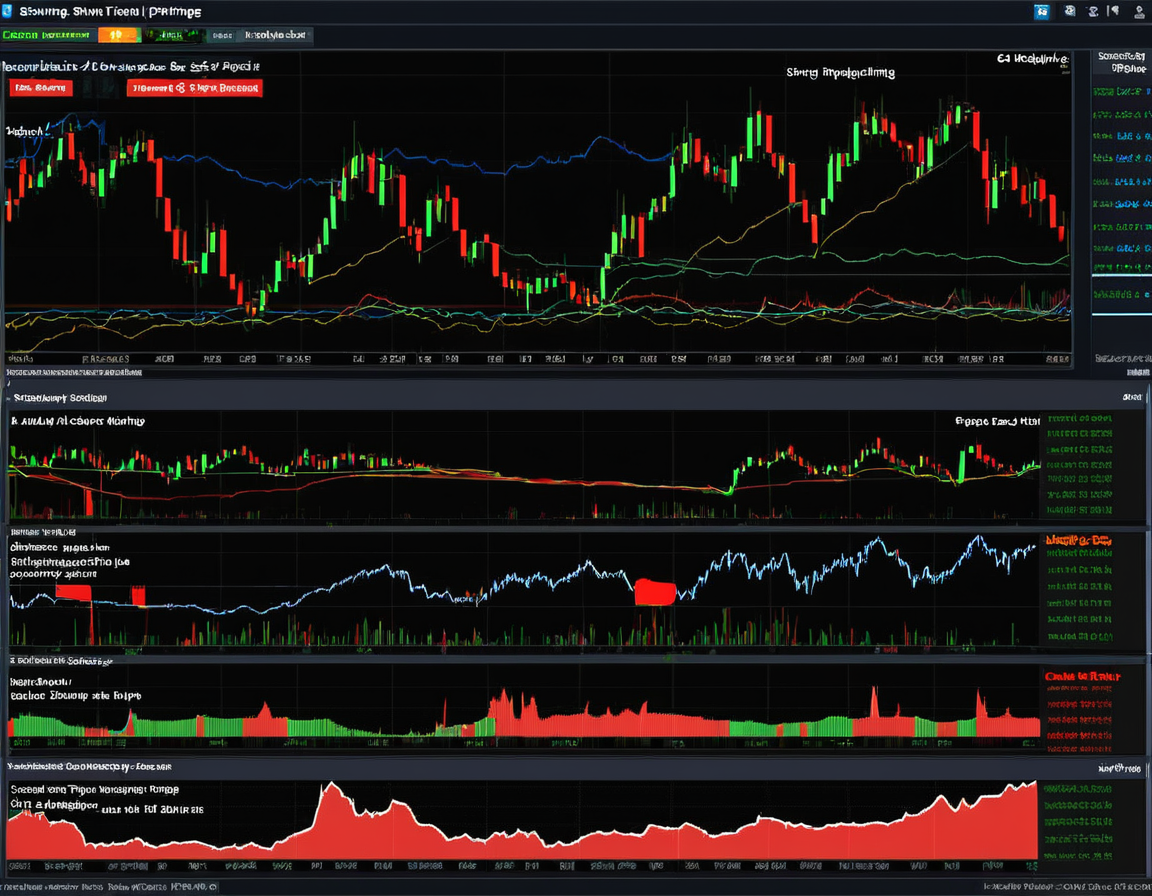The Indian Stock Market vs. Forex Trading: Key Differences Explained
When it comes to investing, Indian traders are often faced with a choice between the Indian stock market and the forex market. While both markets offer unique opportunities, they differ in terms of volatility, liquidity, trading hours, and strategies. Understanding these differences can help traders make informed decisions about where to allocate their capital. In this blog, we will explore the key differences between forex trading and the Indian stock market and discuss the benefits and risks associated with each.
Key Differences Between the Indian Stock Market and Forex Trading
1. Market Hours
One of the most significant differences between the two markets is their trading hours. The Indian stock market operates from 9:15 AM to 3:30 PM IST on weekdays, while the forex market is open 24 hours a day, five days a week. This makes the forex market more accessible for traders with busy schedules, as they can trade forex at any time of day or night.
- Indian Stock Market: Operates during regular business hours on weekdays.
- Forex Market: Available 24 hours a day, offering more flexibility for Indian traders.
For more information on stock market trading hours, visit the National Stock Exchange of India.
2. Liquidity and Market Size
The forex market is the largest and most liquid financial market in the world, with a daily trading volume exceeding $6 trillion. In comparison, the Indian stock market is smaller, with significantly less liquidity. The high liquidity in the forex market allows for quicker order execution and lower spreads, making it easier to enter and exit trades.
- Forex Market: Extremely liquid with high trading volumes.
- Indian Stock Market: Smaller market with less liquidity compared to forex.
Learn more about the size and liquidity of the forex market on Investopedia.
3. Volatility
Both the forex market and the Indian stock market experience periods of volatility, but forex tends to be more volatile due to its sensitivity to geopolitical events, economic data, and central bank decisions. On the other hand, the stock market’s volatility is more affected by company-specific news, earnings reports, and sector performance.
- Forex Market: High volatility driven by global economic events and news.
- Indian Stock Market: Volatility is typically influenced by corporate earnings, sector performance, and domestic factors.
For insights on market volatility, read Forbes’ article on managing volatility in financial markets.
Pros and Cons of Forex Trading vs. Stock Market Trading
1. Forex Trading Pros and Cons
Pros:
- 24/5 Availability: Trade forex at any time, even after the Indian stock market closes.
- High Leverage: Forex brokers in India often offer leverage up to 1:20.
- Lower Transaction Costs: Due to high liquidity, spreads are generally tighter in forex trading.
Cons:
- High Volatility: The forex market can be extremely volatile, leading to rapid price swings.
- Complex Analysis: Requires understanding of global economic trends, interest rates, and geopolitical events.
To explore more about the advantages and disadvantages of forex trading, check out BabyPips’ guide.
2. Stock Market Trading Pros and Cons
Pros:
- Long-Term Growth Potential: Stocks offer the potential for capital appreciation over the long term.
- Dividends: Stockholders may receive dividends, providing a source of passive income.
- Less Volatility: Stock market movements tend to be less volatile compared to forex, especially in blue-chip stocks.
Cons:
- Limited Trading Hours: The stock market is only open during business hours.
- Lower Liquidity: Stocks are less liquid compared to major currency pairs in forex.
For more on the pros and cons of stock market investing, visit Investopedia’s stock market guide.
Risk Management in Forex vs. Stock Market Trading
1. Leverage Risk
One of the biggest differences between forex and stock trading is the use of leverage. Forex brokers offer much higher leverage compared to stockbrokers, allowing traders to control larger positions with less capital. However, leverage can amplify both profits and losses, making risk management crucial in forex trading.
- Forex Trading: Leverage can magnify profits but also increase losses. SEBI limits leverage to 1:20 for forex traders in India.
- Stock Market Trading: Leverage is much lower, reducing risk but also limiting profit potential.
For tips on managing leverage risk, read FXStreet’s leverage risk management guide.
2. Diversification
In the stock market, diversification is a key strategy to reduce risk. By investing in different sectors and industries, traders can minimize their exposure to sector-specific downturns. In the forex market, diversification is achieved by trading different currency pairs. Indian traders can reduce risk by trading pairs like USD/INR, EUR/INR, and GBP/INR, rather than focusing on a single pair.
For a deeper understanding of diversification strategies, read Forbes’ guide on diversification.
Returns in Forex vs. Stock Market Trading
1. Potential for Short-Term Profits
Forex trading, with its high leverage and 24/5 market availability, offers the potential for significant short-term gains. Traders can take advantage of small price movements using strategies like scalping and day trading. In contrast, the stock market is more suited for long-term investors looking for gradual capital appreciation.
- Forex Trading: High potential for short-term profits due to leverage and volatility.
- Stock Market Trading: Long-term investment with steady capital growth and dividends.
For more on stock market returns, read Investopedia’s article on stock market investment.
2. Risk-Reward Ratio
Both forex and stock trading require careful consideration of the risk-reward ratio. In forex, traders often use stop-loss and take-profit orders to manage risk, while stock investors can use diversified portfolios and limit orders to mitigate risk.
For insights on how to calculate the risk-reward ratio, refer to BabyPips’ forex risk-reward guide.
How Indian Traders Can Benefit from Both Markets
1. Combining Forex and Stock Market Strategies
Indian traders can benefit from participating in both the forex and stock markets. For example, traders can focus on short-term gains in the forex market using day trading or swing trading strategies, while building long-term wealth through stock investments in blue-chip companies.
2. Diversifying Across Markets
By diversifying their investments across the forex and stock markets, Indian traders can reduce their overall risk. While the forex market offers higher volatility and leverage for short-term trading, the stock market provides stability and long-term growth potential.
For advice on diversifying across asset classes, visit NerdWallet’s investment strategy guide.
Conclusion
Both the Indian stock market and the forex market offer unique advantages and challenges for traders. While forex trading provides opportunities for high returns with its 24/5 availability and leverage, the stock market is ideal for long-term investors seeking steady growth. By understanding the differences between these two markets, Indian traders can make informed decisions and diversify their investment portfolios to achieve their financial goals in 2024.







